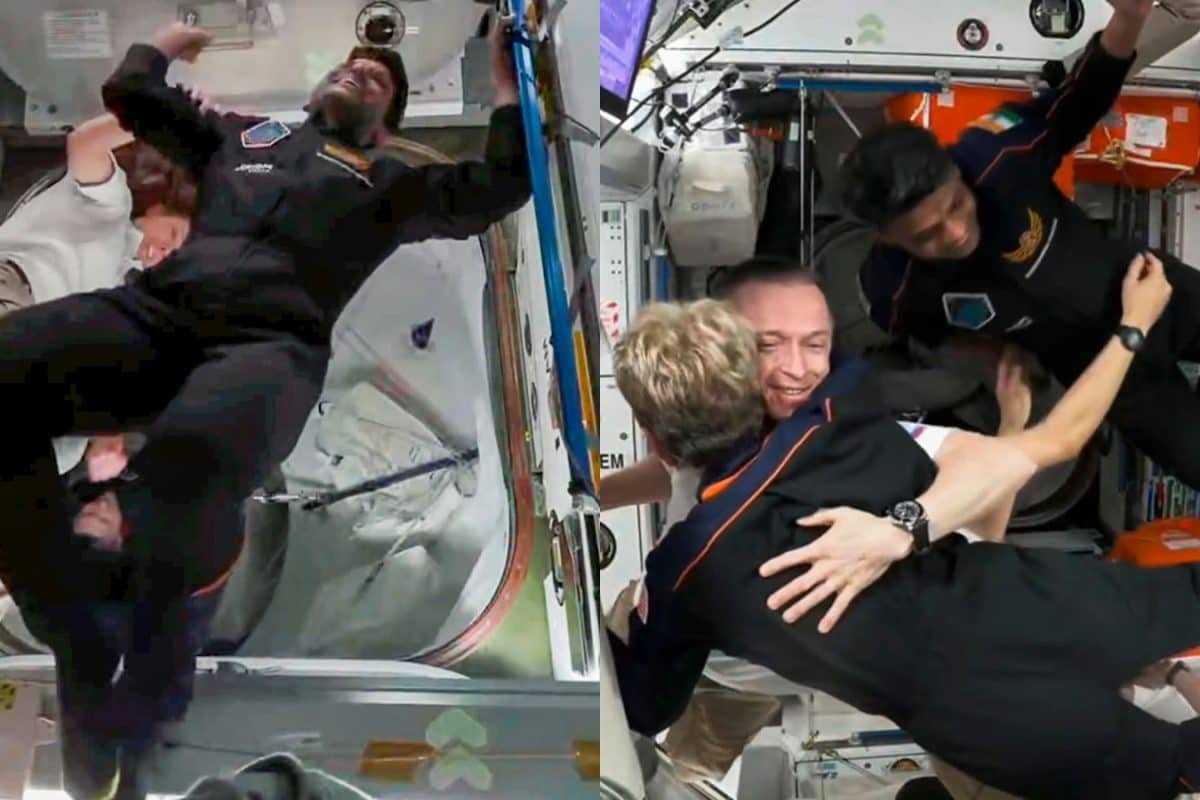

Group Captain Shubhanshu Shukla has etched his name in the annals of Indian space history, becoming the first Indian astronaut to reach the International Space Station (ISS). This momentous achievement came as part of the Axiom-4 (Ax-4) mission, a collaborative endeavor between Axiom Space, NASA, and SpaceX. The mission, which launched on June 25, 2025, from NASA's Kennedy Space Center in Florida, marks India's return to human spaceflight after a gap of over four decades.
Shukla, a distinguished pilot in the Indian Air Force (IAF), joins an elite group as only the second Indian to venture into space, following Rakesh Sharma's mission aboard the Soviet Soyuz T-11 in 1984. The Ax-4 mission is led by commander Peggy Whitson, a former NASA astronaut, with Shukla serving as the mission pilot. The crew also includes mission specialists Sławosz Uznański-Wiśniewski of Poland and Tibor Kapu of Hungary. This mission also signifies a return to space for Hungary and Poland.
The SpaceX Dragon spacecraft, carrying the Ax-4 crew, successfully docked with the ISS on June 26, 2025, after a 28-hour journey. Upon entering the ISS, Shukla and his crewmates were greeted by the station's existing residents, marking the start of their 14-day mission. The crew will be welcomed aboard the ISS by its seven current residents – three NASA astronauts, one Japanese astronaut, and three Russian cosmonauts.
Shukla's journey to space began with his selection for the Indian Space Research Organisation's (ISRO) Gaganyaan mission, India's first human spaceflight program. He underwent rigorous training at the Yuri Gagarin Cosmonaut Training Center in Russia and the Astronaut Training Facility in Bangalore. His extensive experience as a test pilot in the IAF, with over 2,000 hours of flying experience across various aircraft, has been crucial in preparing him for this mission.
The Ax-4 mission is not just a personal milestone for Shukla but also a significant step for India's space program. It provides ISRO with valuable experience in human spaceflight and strengthens international collaboration in space exploration. The crew is scheduled to conduct approximately 60 scientific experiments during their time on the ISS. These experiments span various fields, including plant biology, muscle health, and microbial studies in microgravity. Of particular note, Shukla will lead groundbreaking research in food and space nutrition. Further experiments will include studies of cognitive effects of screen use, microbial adaptation, muscle atrophy, and crop resilience in microgravity. There is also an investigation building on research from previous Axiom Space missions that studied cancer growth in space. It aims to validate earlier findings on tumor organoids and explore how a new model of triple negative breast cancer responds to drug challenges in low Earth orbit (LEO).
In a message from space, Shukla conveyed his excitement and gratitude, emphasizing that this mission is a collective achievement for India. He expressed his hope that his journey will inspire the next generation of Indian scientists and engineers, just as Rakesh Sharma's mission did decades ago. The Axiom-4 mission stands as a symbol of India's growing capabilities in space innovation and its commitment to contributing to global scientific progress.